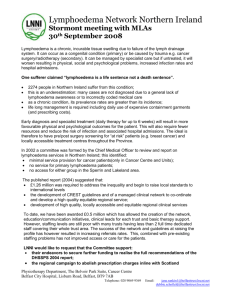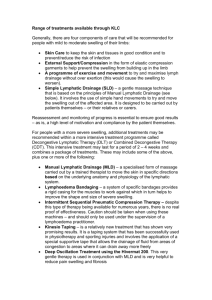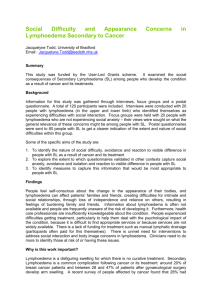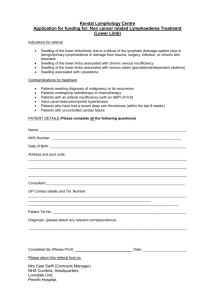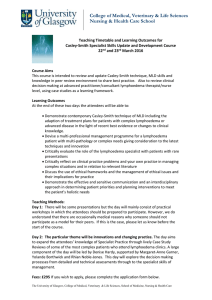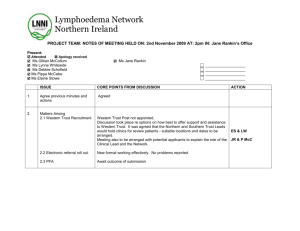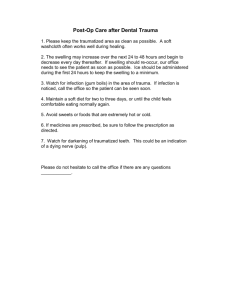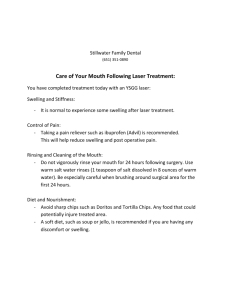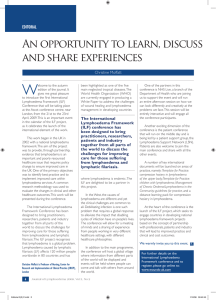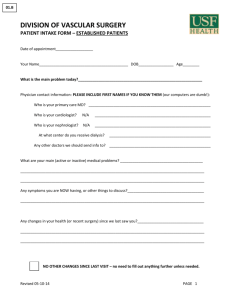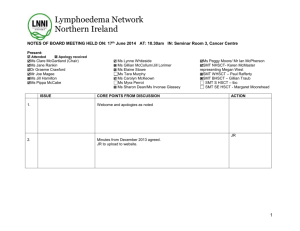Lymphoedema - Alexandra District Hospital
advertisement
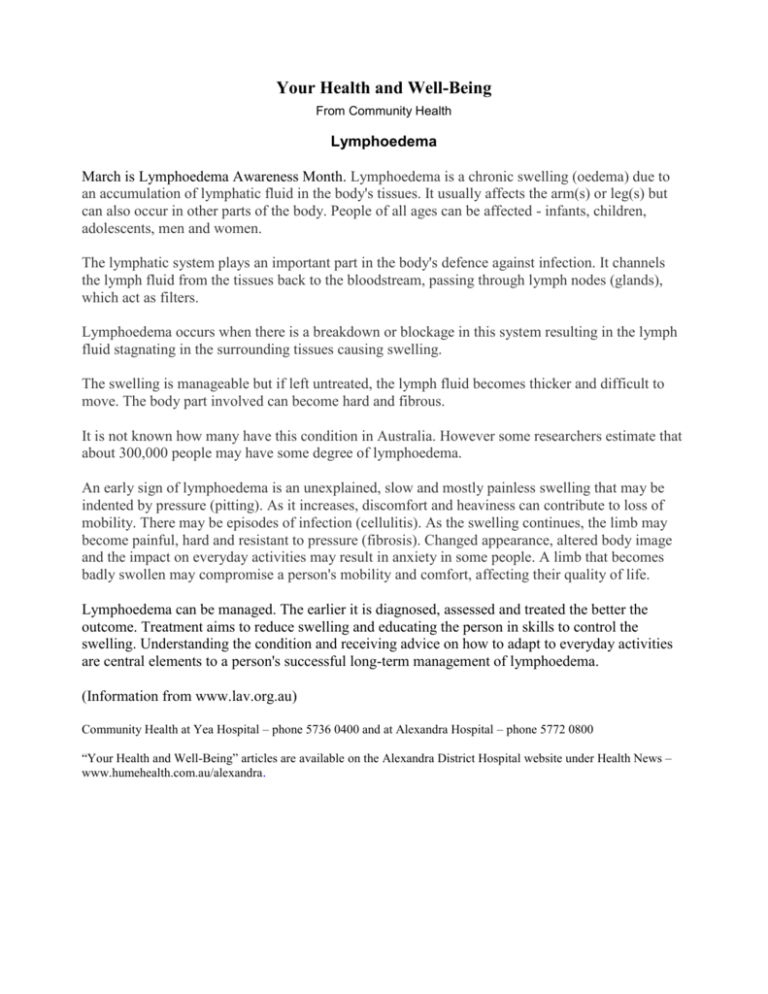
Your Health and Well-Being From Community Health Lymphoedema March is Lymphoedema Awareness Month. Lymphoedema is a chronic swelling (oedema) due to an accumulation of lymphatic fluid in the body's tissues. It usually affects the arm(s) or leg(s) but can also occur in other parts of the body. People of all ages can be affected - infants, children, adolescents, men and women. The lymphatic system plays an important part in the body's defence against infection. It channels the lymph fluid from the tissues back to the bloodstream, passing through lymph nodes (glands), which act as filters. Lymphoedema occurs when there is a breakdown or blockage in this system resulting in the lymph fluid stagnating in the surrounding tissues causing swelling. The swelling is manageable but if left untreated, the lymph fluid becomes thicker and difficult to move. The body part involved can become hard and fibrous. It is not known how many have this condition in Australia. However some researchers estimate that about 300,000 people may have some degree of lymphoedema. An early sign of lymphoedema is an unexplained, slow and mostly painless swelling that may be indented by pressure (pitting). As it increases, discomfort and heaviness can contribute to loss of mobility. There may be episodes of infection (cellulitis). As the swelling continues, the limb may become painful, hard and resistant to pressure (fibrosis). Changed appearance, altered body image and the impact on everyday activities may result in anxiety in some people. A limb that becomes badly swollen may compromise a person's mobility and comfort, affecting their quality of life. Lymphoedema can be managed. The earlier it is diagnosed, assessed and treated the better the outcome. Treatment aims to reduce swelling and educating the person in skills to control the swelling. Understanding the condition and receiving advice on how to adapt to everyday activities are central elements to a person's successful long-term management of lymphoedema. (Information from www.lav.org.au) Community Health at Yea Hospital – phone 5736 0400 and at Alexandra Hospital – phone 5772 0800 “Your Health and Well-Being” articles are available on the Alexandra District Hospital website under Health News – www.humehealth.com.au/alexandra.
